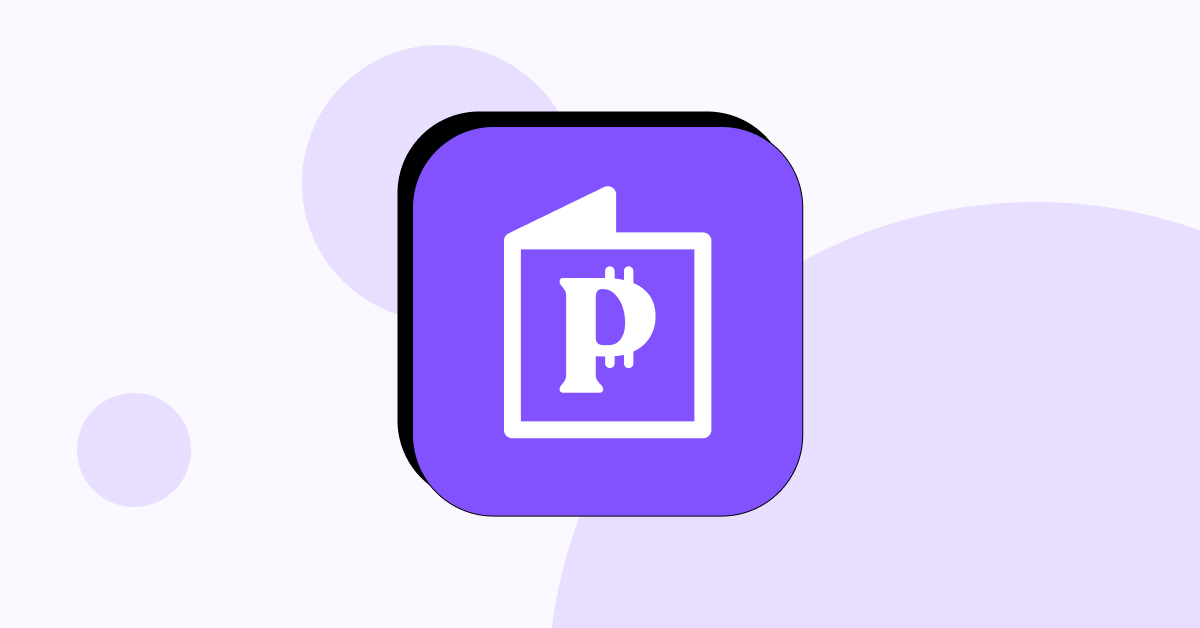Nursing has undergone significant transformations in recent years, expanding beyond traditional hospital settings. Thanks to unparalleled advancements in technology and the ever-increasing demand for remote services, nurses now have the opportunity to leverage their expertise from the comfort of their homes. Home-based nursing jobs offer flexibility, convenience, and the ability to balance work and personal life.
This comprehensive guide will delve into the various opportunities available for nurses to work from home and discuss their profitability. We will also explore the essential skills and equipment needed, provide guidance on finding and securing remote nursing jobs, share strategies to maximize earnings, and conclude with key takeaways.
What Opportunities Exist for Nurses to Work From Home?
The nursing field offers a broad range of opportunities for remote work, enabling nurses to provide valuable healthcare services virtually. Let’s explore some of the most common home-based nursing roles:
- Telehealth Nursing
Telehealth nurses provide patient care remotely through phone calls or video conferences. They offer support, education, and triage services, addressing patient concerns, providing necessary guidance, and assisting with medication management. Telehealth nursing has gained significant popularity, especially in light of the COVID-19 pandemic, and offers diverse opportunities for nurses to work from home.
- Case Management
Remote case managers coordinate patient care from a distance. They work closely with patients, healthcare providers, and insurance companies to ensure optimal treatment plans, smooth communication, and proper care of patients’ needs. Case management roles often involve assessing patients’ health status, coordinating referrals, and monitoring treatment progress.
- Medical Coding and Billing
Nurses with coding and billing certifications can work remotely to assign appropriate codes to medical procedures, ensuring accurate billing and reimbursement for healthcare facilities. They play a crucial role in revenue cycle management, ensuring healthcare providers receive proper service compensation.
- Nursing Education
Nurse educators can develop and deliver online courses, create educational materials, and provide virtual training to aspiring nurses or healthcare professionals. They contribute to the professional development of nursing students and healthcare providers, sharing their knowledge and expertise in a virtual learning environment.
- Remote Patient Monitoring
Nurses can remotely monitor patients’ vital signs, review data from wearable devices, and provide guidance on managing chronic conditions. This level of care allows for proactive interventions, early detection of health issues, and personalized care plans. Remote patient monitoring is particularly valuable for individuals with chronic diseases or those who require ongoing support and monitoring.
- Health Insurance Consulting
Nurses with expertise in healthcare policies and insurance regulations can work remotely as health insurance consultants. They assist individuals and organizations in understanding insurance coverage, filing claims, and navigating the complex healthcare system. Health insurance consulting requires a deep understanding of insurance terminology, policies, and reimbursement processes.
- Legal Nurse Consulting
Legal nurse consultants provide their expertise in legal cases related to healthcare. They review medical records, offer opinions on the standard of care, and assist attorneys in preparing for medical-related litigation. Legal nurse consulting combines nursing knowledge with the legal field, allowing nurses to contribute to legal proceedings from the comfort of their homes.
Can Home-Based Nursing Jobs Be Profitable?
Home-based nursing jobs have the potential to be financially rewarding, depending on various factors. Factors such as the work’s nature, experience level, geographic location, and employer can influence earning potential. While salaries may vary, remote nursing jobs often offer competitive compensation packages that align with traditional on-site nursing roles. Additionally, working from home eliminates commuting costs and increases productivity, potentially enhancing earning potential. Consider the following crucial aspects when determining the profitability of home-based nursing jobs:
- Job Role and Experience
Nursing roles that require specialized skills or advanced certifications may offer higher salaries. For example, telehealth nurses with experience in a specific medical specialty may earn more than general telehealth nurses. Similarly, nurses with case management certifications or legal nurse consulting experience may command higher rates.
- Geographic Location
The average salary for home-based nursing jobs can vary depending on location. Salaries in metropolitan areas tend to be higher than in rural areas due to the cost of living and demand for remote nursing services.
- Employer and Work Setting
The type of employer and work setting can influence earning potential. Hospitals, healthcare organizations, insurance companies, and telehealth providers often offer competitive salaries and benefits for remote nursing positions. Freelancing or independent contracting may provide flexibility but requires self-promotion and establishing a client base to maximize earnings.
- Negotiation and Additional Benefits
When considering a home-based nursing job, it’s important to negotiate your salary based on your qualifications, experience, and market rates. Additionally, consider the benefits offered, such as health insurance and retirement plans, as they contribute to the overall value of the position. Researching salary ranges specific to the role, location, and employer is crucial to better understand the earning potential for home-based nursing jobs.
What Skills and Equipment Do You Need for Home-Based Nursing?
Several skills and equipment are necessary to excel as a home-based nurse. Below you’ll find those that are must-haves:
- Strong Communication Skills
Superb verbal and written communication skills are vital for effective remote patient care, collaboration with colleagues, and clear documentation. Nurses must be able to convey information clearly, empathetically, and efficiently through virtual channels. Active listening and effective communication are vital for building rapport with patients and ensuring accurate information exchange.
- Technological Proficiency
Familiarity with telehealth platforms, electronic health records (EHR) systems, and other relevant software is necessary for seamless remote healthcare delivery. Nurses should be comfortable navigating virtual communication tools, conducting video consultations, and utilizing digital resources. Proficiency in EHR systems ensures accurate and secure documentation of patient information.
- Time Management and Organization
Working from home requires discipline, self-control, and managing time effectively. Nurses must prioritize tasks, adhere to schedules, and deliver timely care. Strong organizational skills are crucial for maintaining accurate patient records, managing multiple responsibilities, and meeting deadlines.
- Critical Thinking and Decision-Making
Home-based nurses often work independently and encounter complex healthcare situations. They need strong critical thinking skills to assess patients’ conditions remotely, make sound judgments, and provide appropriate care recommendations. Therefore, critical thinking skills are especially important when triaging patients, identifying potential risks, and determining the necessary course of action.
- Empathy and Patient Advocacy
Nurses must demonstrate empathy and compassion toward patients regardless of setting. They should be able to build rapport, actively listen to patients’ concerns, and advocate for their needs effectively. Nurses are essential in providing emotional support to patients and ensuring their voices are heard.
- Reliable Internet Connection
A stable and high-speed internet connection is vital for video conferencing, accessing patient records securely, and other online tasks. Nurses should ensure they have a reliable internet service provider to support uninterrupted remote work. Investing in a backup internet connection or mobile hotspot can be beneficial in case of any connectivity issues.
- Computer or Laptop
A computer or laptop with adequate processing power and storage is necessary to perform nursing duties from home. It should meet the technical requirements of telehealth platforms, EHR systems, and other software applications used in remote nursing practice. Regular software updates and security measures are critical to protect patient information and maintain data privacy.
- Privacy and Security Measures
Nurses must ensure they have a private and secure workspace at home. To protect their patients’ confidentiality, nurses need to secure electronic devices with strong passwords, utilize encrypted communication platforms, and follow privacy regulations, such as the Health Insurance Portability and Accountability Act (HIPAA).
How to Find and Secure Nursing Jobs From Home?
Landing a remote nursing job is not always easy. To do so, prospective candidates need to keep in mind several aspects to boost the likelihood of employers having an interest in them. By utilizing certain strategies, nurses can increase their chances of finding and securing rewarding home-based nursing jobs that align with their skills and preferences. Finding and securing home-based nursing jobs requires the following strategic approach:
- Research and Networking
Explore online job boards, professional nursing associations, and social media platforms dedicated to nursing professionals. Stay updated with remote job opportunities and connect with colleagues and mentors who may have information on available positions. Join relevant online communities and engage in discussions to expand your network. Attend virtual conferences or webinars related to remote nursing to gain insights and connect with potential employers.
- Tailor Your Resume and Cover Letter
Customize your resume and cover letter in great detail to highlight relevant skills, certifications, and experience, demonstrating your ability to excel in a remote nursing role. Emphasize your proficiency in telehealth, remote patient monitoring, and other virtual care technologies. Highlight any previous remote work experience or transferable skills that apply to the role. Consider seeking professional resume writing services or guidance from career counselors to optimize your application materials.
- Prepare for Virtual Interviews
Practice virtual interview etiquette and familiarize yourself with teleconferencing platforms commonly used for remote interviews. Check your audio and video settings in advance, dress professionally, and create a quiet and well-lit environment for the interview. Demonstrate your ability to communicate effectively, showcase your enthusiasm for remote nursing, and highlight your adaptability to virtual work environments. Prepare answers to standard interview questions and be ready to discuss your experiences in remote nursing or relevant transferable skills.
- Consider Freelancing or Contract Work
Freelancing platforms and contract agencies can connect you with short-term or project-based remote nursing opportunities. These platforms can provide a flexible schedule and allow you to choose assignments that align with your interests and expertise. Build a strong portfolio and maintain positive client relationships to enhance your chances of securing future contracts. Be proactive in seeking opportunities and stay active on relevant freelancing websites.
- Leverage Online Platforms
Utilize dedicated websites and platforms that help individuals monetize their expertise. For example, Pawns.app is a valuable resource for home-based nurses looking to earn extra income with paid surveys. By offering consultation services, educational webinars, or written resources, you can utilize online platforms to reach a wider audience and generate additional revenue. Create a compelling profile and promote your services to attract potential clients. Regularly update your profile with new skills, experiences, and certifications to stay relevant and increase your chances of being hired. Check our blog on the best paid nursing survey sites.
- Professional Development and Continued Education
Continuous learning and professional development are paramount for staying competitive in remote nursing. Attend virtual conferences, workshops, and webinars to expand your knowledge, acquire new skills, and stay updated with emerging trends. Seek out certifications or advanced training programs relevant to your desired home-based nursing role. Employers often value nurses who actively invest in their professional growth and demonstrate a commitment to providing high-quality remote care.
How Can You Maximize Your Earnings as a Home-Based Nurse?
Once you land that dream opportunity to work as a healthcare practitioner from the comfort of your home, you’ll want to look for ways to improve your earnings. To optimize them, consider the following strategies:
- Expand Your Skill Set
Consider acquiring additional certifications or specialized training to enhance your value as a remote nurse. Following this strategy can open up opportunities for higher-paying positions or niche roles within the remote nursing landscape. Explore certifications in areas such as telehealth, case management, legal nurse consulting, or coding and billing. These certifications can demonstrate your expertise and differentiate you from other candidates.
- Seek Higher-Paying Positions
Research and target remote nursing positions that offer competitive salaries or additional benefits. Explore opportunities in healthcare organizations, insurance companies, telehealth providers, or consulting firms. These entities often provide better compensation packages than individual freelancing or contract work. Network with professionals in your desired field and inquire about potential openings or ways to advance within your chosen niche.
- Consider Additional Responsibilities
Look for opportunities to take on additional responsibilities within your home-based nursing role. This approach can include assuming leadership roles, participating in quality improvement initiatives, or contributing to research projects. By expanding your responsibilities, you can showcase your expertise, contribute to the advancement of nursing practice, and potentially negotiate higher compensation.
- Market Yourself Effectively
Develop a strong personal brand and market yourself as an expert in your chosen field. Utilize social media platforms, professional networking sites, and online communities to share your knowledge, insights, and experiences. Publish articles, create educational content, or present at virtual conferences to establish yourself as a thought leader. Engage with your audience, respond to inquiries, and build a reputation for delivering high-quality care and expertise. A solid online presence can attract potential clients or employers and increase your earning potential.
- Optimize Time Management
Efficiently managing your time allows you to take on more clients or projects, increasing your earning potential. Create a schedule allowing dedicated time to focus on your nursing duties, documentation, and professional development. Minimize distractions, establish boundaries, and prioritize tasks to maximize productivity during work hours.
- Evaluate Market Demand
Stay informed about the current trends and demands within the home-based nursing industry. Identify areas with high demand and consider specializing in those fields. For example, if remote patient monitoring is in high demand, focus on acquiring the necessary skills and certifications to position yourself as an expert. Conduct market research and align your skills and services with the needs of the healthcare market to increase your earning potential.
- Build Client Relationships
Building strong relationships with clients is crucial whether you’re working as a freelancer or within a remote nursing role. Provide exceptional care, maintain open lines of communication, and go above and beyond to meet their needs. Satisfied clients have a higher chance of referring you to others, providing positive testimonials, and potentially offering repeat business. Nurture relationships with your clients and consider offering loyalty discounts or incentives to encourage long-term partnerships.
Final Takeaways
Working as a home-based nurse presents an exciting opportunity to combine the nursing profession with the flexibility and convenience of remote work. Nurses can find fulfilling and profitable careers from the comfort of their homes by exploring various remote nursing roles, developing essential skills, utilizing the right equipment, strategically searching for opportunities, and implementing strategies to maximize earnings. Continuous professional development, networking, and adaptability to industry changes are essential for long-term success in the evolving landscape of home-based nursing.
FAQs
What Types of Nursing Jobs Can Be Done From Home?
Home-based nursing jobs include telehealth nursing, case management, medical coding and billing, nursing education, remote patient monitoring, health insurance consulting, legal nurse consulting, and more. These roles allow nurses to provide healthcare services from home and contribute to patient care outside traditional hospital settings.
What Is the Average Salary for a Nurse Working From Home?
Salaries for home-based nurses can vary depending on factors such as experience, location, job role, and employer. However, remote nursing jobs often offer competitive compensation packages on par with on-site nursing roles. Nurses with specialized skills, certifications, or advanced experience may earn higher salaries. It’s important to research salary ranges specific to your desired role and location to better understand earning potential.
How Do I Get Started With Home-Based Nursing Jobs?
Finding home-based nursing jobs requires proactive research, networking, and utilizing online platforms. Explore online job boards, nursing associations, and social media groups dedicated to nursing professionals. Network with colleagues, attend virtual conferences and engage in discussions to expand your connections. Consider freelancing platforms, contract agencies, or specialized platforms to connect with remote job opportunities. Tailor-make your resume and cover letter to highlight relevant skills and experiences, and be prepared for virtual interviews.


